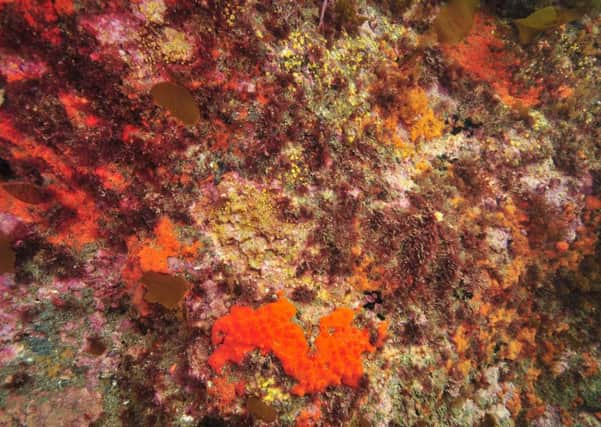CO2 '˜pulses' threat to Scottish marine ecosystems


Until now, scientists had only tested the effect of high CO2 on individual plants and animals, meaning very little was known about how whole marine ecosystems respond to sudden influxes of CO2.
A team of marine scientists from Heriot-Watt University and the University of Glasgow conducted a four-day experiment at Loch Sween, on the west coast of Scotland to measure the community response to short-term CO2 exposure. The team pumped water enriched with CO2 into chambers placed over the coralline algal ecosystem and monitored the community’s response before, during and after CO2 exposure. The experiment revealed that acute CO2 exposure led to net dissolution: calcified organisms like the coralline algae and star fish were dissolving.
Advertisement
Hide AdAdvertisement
Hide AdDr Heidi Burdett, a research fellow at Heriot-Watt University’s Lyell Centre for Earth and Marine Science and Technology, said: “Coralline algal ecosystems can be found in all the world’s coastal oceans and are particular common along the west coast of Scotland. Since coralline algae are highly calcified, we knew they would probably be quite sensitive to CO2.
“These beds have significant ecological and economical value: in Scotland, they act as nurseries for important catches like scallops, cod and pollock. We found that there was a rapid, community-level shift to net dissolution, meaning that within that community, the skeletons of calcifying organisms like star fish and coralline algae were dissolving.
“If you think of pulses of carbon dioxide being carried on the tide to a particular site, it’s like a flash flood of CO2.
“Our continued monitoring of the site directly after the CO2 exposure found recovery was comparably slow, which raises concern about the ability of these systems to ‘bounce back’ after repeated acute CO2 events.”
Dr Burdett and her team believe more research is necessary to understand how marine ecosystems respond to short-term and long-term CO2 exposure, and that it should be taken into account by policymakers.
She added: “If a local authority or government agency is deciding the location of a new fish farm, forestry or carbon capture site, we should be looking at what marine ecosystems are nearby, and the potential for those ecosystems to be impacted by the new activities as a whole, rather than focusing on the impact on individual organisms.”
Dr Burdett’s research was published in the Marine Progress Ecology Series.